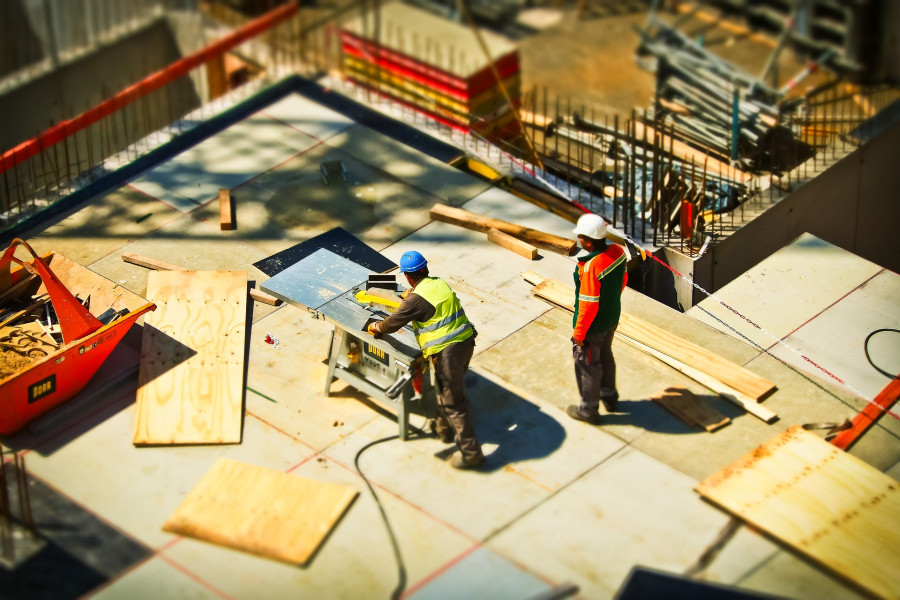Unveiling the Latest Trends in Modern Construction in the UK

The construction industry in the UK is changing. Greater emphasis is being placed on innovative technologies, offsite construction methods and sustainable building solutions. In this post, we explore some of the latest trends in modern construction in the UK. These trends are being driven by the need for faster, more sustainable and technologically advanced building solutions.
Offsite modular construction
Offsite modular construction is increasingly being utilised across the UK in a range of construction projects, from housing to commercial and public developments. It involves the fabrication of building components in controlled factory environments, which are then transported and assembled onsite. The increasing popularity of offsite modular construction is due to the many benefits it offers compared to traditional, onsite construction methods. It offers high precision, faster project completion times, reduced costs, reduced waste and enhanced sustainability and energy efficiency.
Offsite modular construction is gaining traction in the UK due to its potential to address housing shortages and environmental concerns. It is favoured by many developers because it can offer consistent quality and minimal disruption to local communities.
Prefab and panelisation
Prefab and panelisation is a form of offsite modular construction. It involves sections of a building being created offsite and then transported and assembled at the construction site. Prefab is short for 'prefabrication' and involves the creation of individual building components such as floors, walls, roofs and even entire modules in a factory setting. Prefab components are constructed using precise measurements and high-quality materials, ensuring consistency and accuracy. Once completed, the prefab components are transported to the construction site, where they are assembled into the final structure.
Panelisation is a specific form of prefab construction which involves larger sections of a building, known as panels, being prefabricated offsite. This can include entire wall sections, floor slabs and roof trusses.
Prefab and panelisation are becoming increasingly popular in UK construction projects because of the many benefits they offer compared to traditional solutions. This includes faster construction times, reduced material waste, enhanced quality control and the ability to work in parallel on different stages of a project. Prefab and panelisation are especially suitable for repetitive building elements and structures with standardised designs.
Digital design and Building Information Modelling (BIM)
The use of digital design tools and Building Information Modelling (BIM) is transforming the construction process in the UK. BIM is a collaborative process involving all the stakeholders in a project, including design, construction, maintenance and operation phases.
BIM involves 3D modelling and is an intelligent and data-rich model that integrates various information about a building or infrastructure project throughout its lifecycle. The BIM model serves as a shared knowledge resource for all stakeholders involved in a project. BIM adoption is increasing in the UK as it enhances project visualisation, coordination and data sharing, which results in improved efficiency and reduced errors.
Green and sustainable construction
With a growing emphasis on environmental responsibility, sustainable construction practices are gaining prominence in the UK. This includes the use of eco-friendly materials, energy-efficient designs and renewable energy integration. Modern construction methods that prioritise sustainability align with the UK's commitment to achieving net-zero carbon emissions by 2050.
Offsite modular construction methods are known for being more energy efficient and sustainable than traditional construction methods. This is one of the reasons they are being more widely promoted and utilised across the UK construction industry.
Passive House Design (or Passivhaus) is one method which is being increasingly utilised for its green credentials. This method involves the creation of highly energy-efficient buildings that require minimal heating or cooling. These buildings are well insulated, airtight and utilise passive solar gain to maintain comfortable indoor temperatures. The UK has embraced Passive House standards in various residential and commercial projects.
Advanced materials and technologies
The UK construction industry is exploring innovative materials and technologies to enhance building performance. This includes the use of high-performance concrete, advanced insulation, smart building systems and even 3D printing. These advancements contribute to energy efficiency, durability and improved occupant comfort.
Some examples of advanced materials include graphene-enhanced materials and cross-laminated timber (CLT). Graphene is a remarkable nanomaterial and is being researched for its potential to enhance concrete strength and durability. Graphene oxide is added to concrete mixes to improve mechanical properties, reduce permeability and increase resistance to corrosion. Cross-laminated Timber (CLT) is a sustainable and versatile construction material made from layers of wood panels glued together at right angles. It offers strength, fire resistance and design flexibility. CLT is being used in the UK for sustainable and efficient building construction, including tall buildings. In addition to these, greater research and focus is being placed on self-healing concrete, smart glass and biodegradable building materials.
In terms of technology, we are seeing greater adoption of 3D printing, carbon capture and utilisation (CCU), augmented reality, virtual reality, drones, robotics and smart building systems. These technologies are being explored and adopted to enhance all aspects of the construction process and building utilisation from design to construction, project management, inspection, quality control and long-term building use and maintenance.
These trends collectively reflect the evolving landscape of modern methods of construction in the UK. Their research and increasing utilisation are being driven by the need for faster, more sustainable and technologically advanced building solutions.